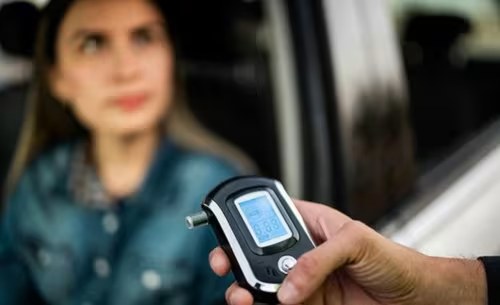Disclaimer: This guest post was written by a third party and is for informational purposes only. It does not constitute legal advice or create an attorney-client relationship with The Meehan Law Firm. For legal advice, please contact our office.
.avif)
.avif)
In California, where car culture meets a lively nightlife and social scene, being a designated driver (DD) is more than a favor; it’s a legal and moral duty. Being a DD includes promising to stay sober, keeping passengers safe, and taking steps to prevent alcohol-related incidents on the road. People often do not understand the position’s scope, or they may take it lightly, but under California law and societal norms, negligence in this function can have serious and far-reaching repercussions.
The Role of the Designated Driver: More Than Just “Sober Driving”
In essence, a DD agrees not to consume any alcohol or intoxicating substances during an event to ensure people get home safely. In California, this commitment is supported by both legal principles and public safety programs intended to prevent driving under the influence (DUI).
A designated driver is not someone who is “less intoxicated” or thinks they are below the legal limit. California law, specifically Vehicle Code § 23152, makes it illegal for an adult to operate a motor vehicle with a blood alcohol concentration (BAC) of 0.08% or higher. The limit is 0.04% for commercial drivers (including ride-share drivers), as defined in § 15210. For drivers under 21, California’s Zero Tolerance Laws say that any amount of alcohol is illegal.
A DD must maintain a BAC of 0.00% - total sobriety is expected, legally and ethically.
It is important to understand that you cannot accurately estimate your blood alcohol level, so drinking any alcohol puts you at risk of being over the legal limit if you are the designated driver. Telling the officer you are the designated driver because you did not drink as much as your passengers will not prevent them from arresting you.
Legal and Social Expectations of the Designated Driver
The legal expectations for a DD are the same as those of any sober driver on California roads, but the social responsibility adds another level of accountability. A DD is expected to:
- Do not consume alcohol or drugs at all, including prescription or over-the-counter medications that could impact your ability to drive. Many bars will provide DDs with free non-alcoholic drinks.
- Do not allow anyone else to drive.
- Ensure that all passengers are wearing seatbelts, in compliance with California Vehicle Code § 27315.
- Drive safely and lawfully, observing all traffic rules and speed limits.
- Control the group’s transportation plan. Anyone who has been drinking will not be permitted to drive, and everyone who came together should leave together.
Not meeting these responsibilities endangers lives and can expose the driver to civil liability in the event of an accident, especially if negligence can be shown.
Preventing DUI Incidents: The Importance of the Designated Driver
DUI-related accidents are a significant public health issue in California. The California Office of Traffic Safety contends that thousands of collisions, injuries, and fatalities each year involve alcohol-impaired drivers.
The DD is an important defense against these incidents. A designated driver prevents impaired individuals from driving by providing a safe, sober ride. Having a DD greatly lowers the risk of drunk driving and directly reduces DUI arrest rates, fatal accidents, and alcohol-related incidents.
Consequences of DUI in California
California has severe penalties for individuals found guilty of driving under the influence. These may include:
- Fines and Penalties: A first-time DUI can cost more than $15,000 when fines, court fees, DUI school, and higher insurance premiums are included.
- License Suspension: Administrative suspensions from the DMV, plus possible ignition interlock device (IID) requirements.
- Jail Time: Even first offenses may involve jail time, particularly if aggravating factors are present.
- DUI Education Programs: Mandatory attendance.
- Vehicle Impoundment or IID Installation: Court orders may require either.
- Criminal Record: A DUI conviction becomes permanent and impacts future opportunities.
If a DUI results in injury or death, charges may carry prison sentences. A DD prevents friends and companions from facing these severe consequences.
Broader Impact of a DUI Conviction
A DUI conviction can affect:
- Education: Schools may deny admission due to criminal records.
- Professional Licenses: Teaching, nursing, and legal boards may revoke or deny licenses.
- Employment: Background checks often reveal convictions, limiting opportunities.
- Insurance: DUI convictions cause steep premium increases or coverage cancellation.
A DD can shield friends from these long-term consequences.
Common Misconceptions About Being a Designated Driver
- “I can have one or two drinks.” Even one drink impairs judgment; California law requires total sobriety.
- “I can sleep it off.” Alcohol metabolism varies; “less drunk” is not sober.
- “I can let someone else drive.” The role of DD means staying sober the entire event.
- “I’m only driving a short distance.” Most DUI arrests and accidents occur near home.
Practical Tips for Being a Responsible DD
- Communicate with your group at the start—make sure everyone knows who the DD is.
- Plan ahead: hold the car keys, know drop-off locations.
- Stay engaged—watch for signs of excessive intoxication.
- Avoid all substances, including cannabis or medications that impair driving.
- Be ready to intervene if someone insists on driving drunk.
Social Responsibility and Legal Liability
There is growing awareness of the DD’s potential liability. Civil lawsuits may follow if a DD drinks and causes an accident. Worse, if the DD permits an intoxicated person to drive, they may also be seen as partially responsible.
Being a DD in California is not a casual agreement - it is a meaningful, responsible, and legally significant commitment. This role saves lives, prevents legal disasters, and fosters safer communities. Being a responsible DD is both good etiquette and an important civic responsibility.
(844) 4-DUI STOP
Categories
Need Help?
Free Consultation, discreet, and no obligation- talk to an attorney.
More Blogs

How Can You Defend Someone Who Is Guilty?
Defense attorneys protect constitutional rights, ensure due process...
Read More..
Why a Second DUI Might Be Your Wake-Up Call
Facing a Second DUI in California: Why It Should Be Your Wake-Up Call..
Read More..
How To Spot a Bad DUI Lawyer in 10 Minutes or Less
Choosing the Right DUI Lawyer in California: Spotting Red Flags Early...
Read More..



